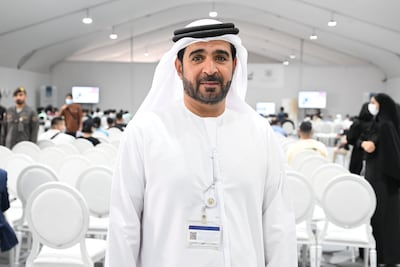Dubai’s Citizenship and Residency Court has imposed fines worth Dh25.2 million against 21 people convicted in one of the emirate’s largest residency visa fraud cases.
The suspects, of various nationalities, were found guilty of operating fraudulent companies to unlawfully obtain residency visas, which they later sold to 385 recipients.
The network exploited legal loopholes by setting up dummy businesses that existed only on paper and never functioned as legitimate employers.
Counsellor Ali Humaid bin Khatem, senior advocate general and director of Dubai’s Citizenship and Residency Prosecution, said it is one of the largest cases of misusing residency visas to exploit people.
He said the investigation included 33 commercial establishments, which served as decoys for obtaining and misusing the visas.
“Most of the business licences under which the illegal establishments operated had been secured by furnishing fictitious addresses. The aim was to undermine and exploit residency and labour regulations for unlawful gain,” Mr bin Khatem said in a statement on Tuesday.
Officials from the General Directorate of Residency and Foreign Affairs in Dubai discovered the companies and reported them to the Dubai Public Prosecution.
“The arrests followed extensive monitoring, follow-ups and inspections of the companies’ purported offices,” Mr bin Khatem added.
Following their arrest, the suspects were referred to the prosecutors for investigation and evidence was gathered and submitted.
“The prosecutors will continue to work closely with its partners to address any violations of laws governing the entry and residence of foreigners as well as labour regulations in order to preserve the stability of society and the integrity of the labour market,” Mr bin Khatem said.
The specs: 2018 Nissan Patrol Nismo
Price: base / as tested: Dh382,000
Engine: 5.6-litre V8
Gearbox: Seven-speed automatic
Power: 428hp @ 5,800rpm
Torque: 560Nm @ 3,600rpm
Fuel economy, combined: 12.7L / 100km
Sholto Byrnes on Myanmar politics
The Sand Castle
Director: Matty Brown
Stars: Nadine Labaki, Ziad Bakri, Zain Al Rafeea, Riman Al Rafeea
Rating: 2.5/5
UAE currency: the story behind the money in your pockets
The%20Afghan%20connection
%3Cp%3EThe%20influx%20of%20talented%20young%20Afghan%20players%20to%20UAE%20cricket%20could%20have%20a%20big%20impact%20on%20the%20fortunes%20of%20both%20countries.%20Here%20are%20three%20Emirates-based%20players%20to%20watch%20out%20for.%0D%3Cbr%3E%20%0D%3Cbr%3E%3Cstrong%3EHassan%20Khan%20Eisakhil%3C%2Fstrong%3E%0D%3Cbr%3EMohammed%20Nabi%20is%20still%20proving%20his%20worth%20at%20the%20top%20level%20but%20there%20is%20another%20reason%20he%20is%20raging%20against%20the%20idea%20of%20retirement.%20If%20the%20allrounder%20hangs%20on%20a%20little%20bit%20longer%2C%20he%20might%20be%20able%20to%20play%20in%20the%20same%20team%20as%20his%20son%2C%20Hassan%20Khan.%20The%20family%20live%20in%20Ajman%20and%20train%20in%20Sharjah.%0D%3Cbr%3E%20%0D%3Cbr%3E%3Cstrong%3EMasood%20Gurbaz%3C%2Fstrong%3E%0D%3Cbr%3EThe%20opening%20batter%2C%20who%20trains%20at%20Sharjah%20Cricket%20Academy%2C%20is%20another%20player%20who%20is%20a%20part%20of%20a%20famous%20family.%20His%20brother%2C%20Rahmanullah%2C%20was%20an%20IPL%20winner%20with%20Kolkata%20Knight%20Riders%2C%20and%20opens%20the%20batting%20with%20distinction%20for%20Afghanistan.%0D%3Cbr%3E%20%0D%3Cbr%3E%3Cstrong%3EOmid%20Rahman%3C%2Fstrong%3E%0D%3Cbr%3EThe%20fast%20bowler%20became%20a%20pioneer%20earlier%20this%20year%20when%20he%20became%20the%20first%20Afghan%20to%20represent%20the%20UAE.%20He%20showed%20great%20promise%20in%20doing%20so%2C%20too%2C%20playing%20a%20key%20role%20in%20the%20senior%20team%E2%80%99s%20qualification%20for%20the%20Asia%20Cup%20in%20Muscat%20recently.%0D%3Cbr%3E%3C%2Fp%3E%0A
MATCH INFO
Champions League last 16, first leg
Tottenham v RB Leipzig, Wednesday, midnight (UAE)










